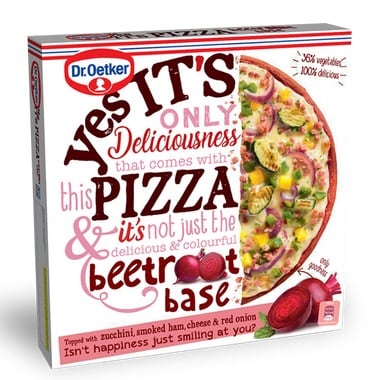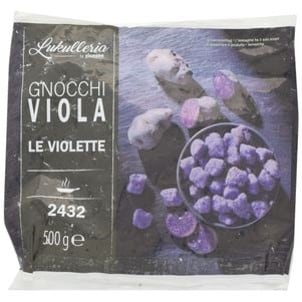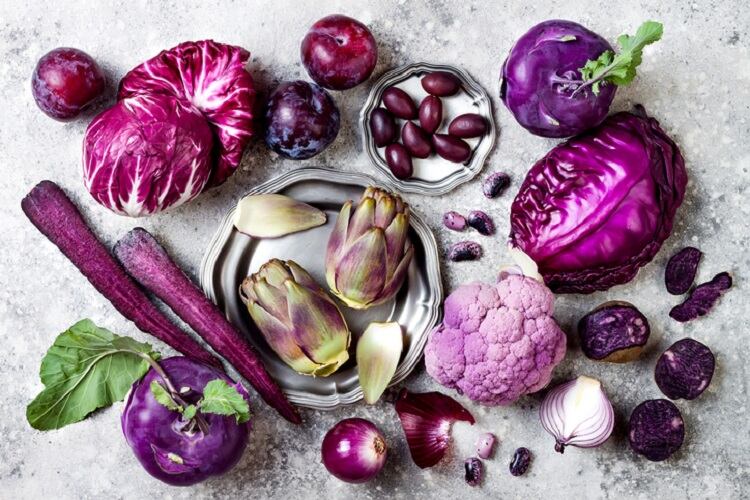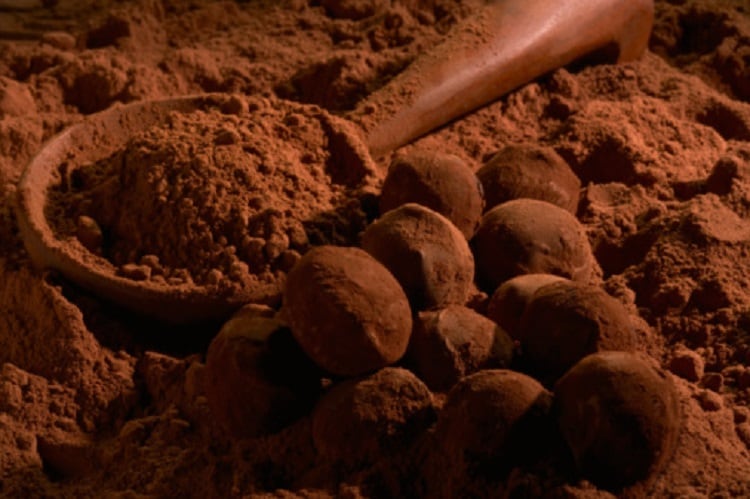Be it acai berries, purple carrots or beetroot-flavoured products, bright purple food is popping up on restaurant menus, in ingredient lists, and on Instagram feeds.
Indeed, according to Mintel director for food and drink content, EMEA, Chris Brockman, social media itself – and in particular visual platforms Instagram, Facebook and Twitter – is a key driver in growing this purple trend.
“Purple works well with social media,” Brockman told FoodNavigator when we caught up last week. “It’s a standout colour.”
Of course, purple is just one of the hues that fall under the ‘colour for impact’ trend, he continued, citing blue and green as other ‘rare’ pigments currently trending in the food industry.
In Mintel’s 2016 ‘Eat With Your Eyes’ report, analysts determined that visual and share-focused societies are driving the demand in the western world for bold colours on our plates.
“Flavour has long been the focus on innovation, but more visually centric and share-focused societies call for innovations that engage more of the sense,” according to the research and analysis firm.
Starting in foodservice, which saw a growing number of restaurants and cafes design ‘social media-worthy’ food as a marketing tactic, the movement has since filtered into the processed food industry.
“Following the lead of foodservice, packaged food and drink has an opportunity to create products that engage more senses than just taste, such as products that are brightly coloured, innovatively shaped or aromatically scented,” according to Mintel.
“This includes products designed to help consumers cook, bake or mix creative items at home.”

Not just a pretty face
Another key driver in the uptake of purple ingredients relates to their nutritional benefits.
“Purple foods are often rich in anthocyanin – a flavonoid with antioxidant qualities – and so many are considered superfoods,” Brockman told us.
Of course, certain ‘trendy’ superfoods in the category have experienced popularity for some time now, such as blueberries – which often contain a purple-ish juice – beetroot and acai berries.
Newer ingredients, at least to the western diet, that similarly offer functional health benefits include purple sweet potato, purple carrot, purple cauliflower and black rice – which looks purple when boiled.
“[These] are less known here [in the west] and have potential for further use,” explained Brockman.
“You also have traditional purple foods like plums, grapes, blackberries, cherries, figs, red onions, red cabbage, raisins, aubergines, which are widely used and could perhaps benefit from promoting their ‘purpleness’ and health qualities more,” he continued.
Tapping into the better-for-you trend
The purple trend represents an opportunity to food and drinks manufacturers looking to harness functional food ingredients for ‘better-for-you’ offerings – a term that describes products boasting more than just taste and sustenance.
With 37% of UK consumers agreeing that better-for-you factors would encourage trial of new types of crisps, savoury snacks, and nuts, Mintel’s Brockman suggested there is room for more innovation in this space.

Germany-headquartered multinational, Dr. Oetker, is one such company looking to meet growing demand for healthier options in the supermarket.
Last year, the food giant – which is best known for its Ristorante and Chicago Town pizzas – launched a two-product-strong range of frozen pizzas made from vegetable dough bases.
Sold under the firm’s ‘Yes It’s Pizza’ brand, the range includes a purple offering, which contains 35% beetroot in its base and is topped with courgette, smoked ham, cheese and red onion. In green, the Yes It’s Pizza Spinach Base is topped with mozzarella, broccoli and mushrooms.
34% of UK pizza consumers are interested in trying pizza containing at least one of their ‘5-a-day’ - Mintel
UK-based Marks and Spencer (M&S) is another firm catering to the ‘better-for-you’ convenience market, similarly in green and purple shades. In 2018, the retailer and manufacturer launched vegetable wraps made from beetroot and spinach.
Other purple products to reach consumers in Europe include Lukulleria by Eismann purple gnocchi in Italy, which is made from a blue-violet potato variety.

Another way that companies can incorporate purple ingredients into finished products is through blending, or mixing in rare food colours with more traditional hues, Brockman suggested.
“Pairing known juice varieties with purple carrot, for example, or mixing orange sweet potato crisps in with purple sweet potato crisps is an effective strategy,” he told this publication.
An entire packet of something made from purple carrot could be “too different” for consumers to accept in the mainstream, Brockman continued. “It would require quite an investment for the consumer, and they may not [end up liking it]. It may be too different.”
Spanish food manufacturer Kitu Foods has done just that with its Andean sweet potato mix – a vegan offering made from orange sweet potato and purple sweet potato sourced from the Andes.
Whether entirely purple or incorporated with other colours, the purple trend is here to stay, said Brockman. “A lot of the ingredients are new to the processed food industry…so they still have a lot of mileage.
“They are healthy and visually interesting. And social media isn’t going away.”



